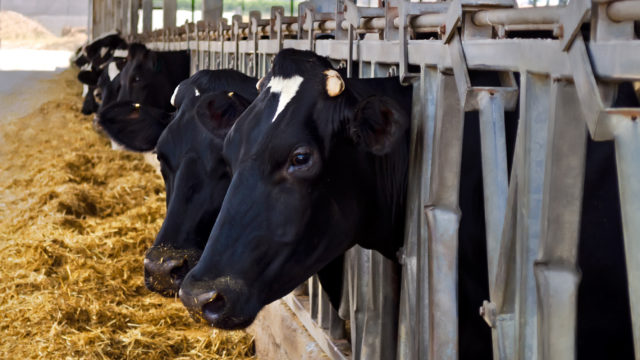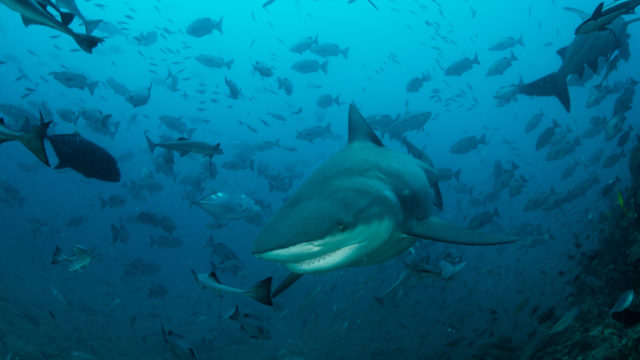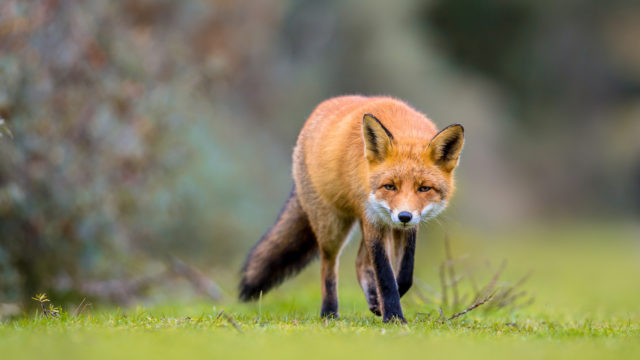Legally Brief: Animal Protection and Human Population Growth
In the past 50 years, my own lifetime, the human population has more than doubled from about 3.2 billion to more than 7 billion. There will likely be more than 10 billion by mid-century. This raises some pressing questions. How many people can our small planet sustain? How many can it sustain while leaving room for the other species that call Earth home? These questions are at the heart of a new speaking tour, which began this week, by the Animal Legal Defense Fund and the Center for Biological Diversity, entitled “Breaking the Taboo: Leading Animal and Environmental Groups to Discuss Population, Human, and Animal Rights.”
ALDF’s director of litigation, Carter Dillard, and the Center for Biological Diversity’s Stephanie Feldstein will speak at the top law schools in the nation to address these difficult issues. And the questions of sustainability and leaving room in the world for other species hinges on one question perhaps more than any other: How do we feed 10 billion people? Because what we choose to eat has a greater impact on the environment and the lives of other animals than any other choice we make.
More than 55 billion land animals are slaughtered each year around the world. More than a quarter of the land on our planet is taken up by animal agriculture. One third of the Earth’s land is used to grow feed for these animals. Eating plants, rather than the animals that consume plants, would dramatically reduce the amount of land needed to grow crops, use only a fraction of the amount of water, and result in far fewer air and water pollutants—particularly greenhouse gases. That means our planet can feed more people on less land. This would, of course, also prevent the lives of misery that most animals raised for food endure until they are slaughtered.
Discussing human reproduction and dietary habits makes people understandably uncomfortable. But we cannot afford to ignore uncomfortable realities. We are the most adaptable species and we have the capacity to see the consequences of our choices. These are issues that cut through politics, age, class, gender, or race—and present some of the most serious challenges in the 21st century. If we don’t confront them all animals, human and nonhuman, and the planet we share, will suffer.
And that’s why this speaking tour aims to help audiences move beyond the stigma that keeps overpopulation and diet out of conversations. In the panel, Carter and Stephanie discuss legal reform and practical ways each of us can protect the future for all species.
Schedule
01/13/15 – Stanford
02/18/15 – University of Minnesota
02/23/15 – Harvard
02/24/15 – Yale
02/25/15 – Columbia
02/26/15 – NYU
02/27/15 – Georgetown
04/02/15 – Lewis & Clark
Panels are hosted by Student Animal Legal Defense Fund (SALDF) chapters and are free and open to the public.
Focus Area
How We Work
Related
-
New Mega Dairy is an Environmental Catastrophe for Oregon Residents
The Animal Legal Defense Fund, in conjunction with other local and national groups, challenged the state of Oregon’s approval of a water-pollution permit for Lost Valley Farm, a mega dairy.June 27, 2017 News -
World Oceans Day Highlights Lack of Protection for Sea Life
World Oceans Day, June 8th, is a global day to honor, help protect, and conserve the world’s oceans.June 8, 2017 News -
U.S. Withdraw from Paris Accord is an Assault on Animals and the Environment
The Animal Legal Defense Fund is dismayed by the decision to withdraw from the Paris Agreement, the global plan to respond to and mitigate climate change.June 1, 2017 Press Release



